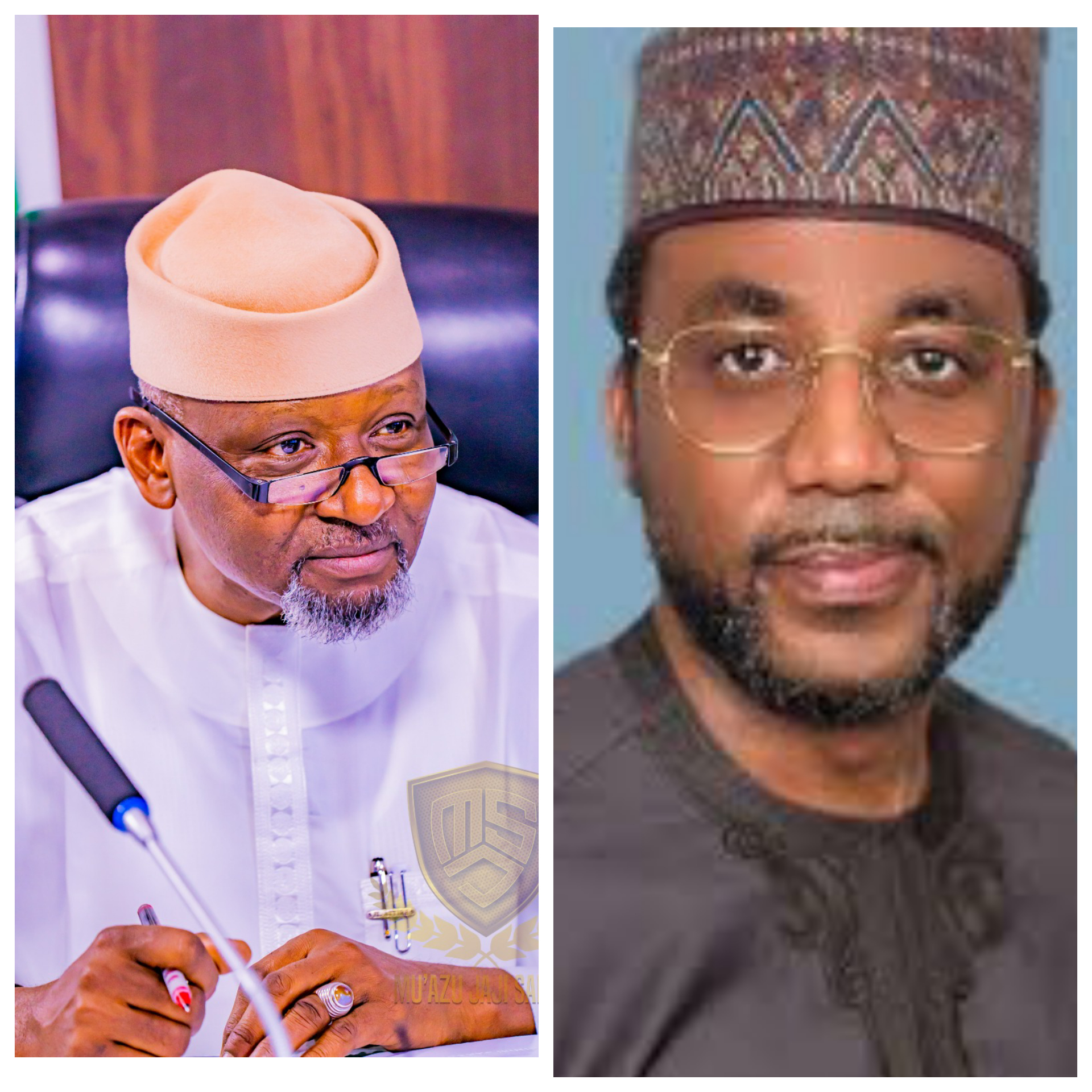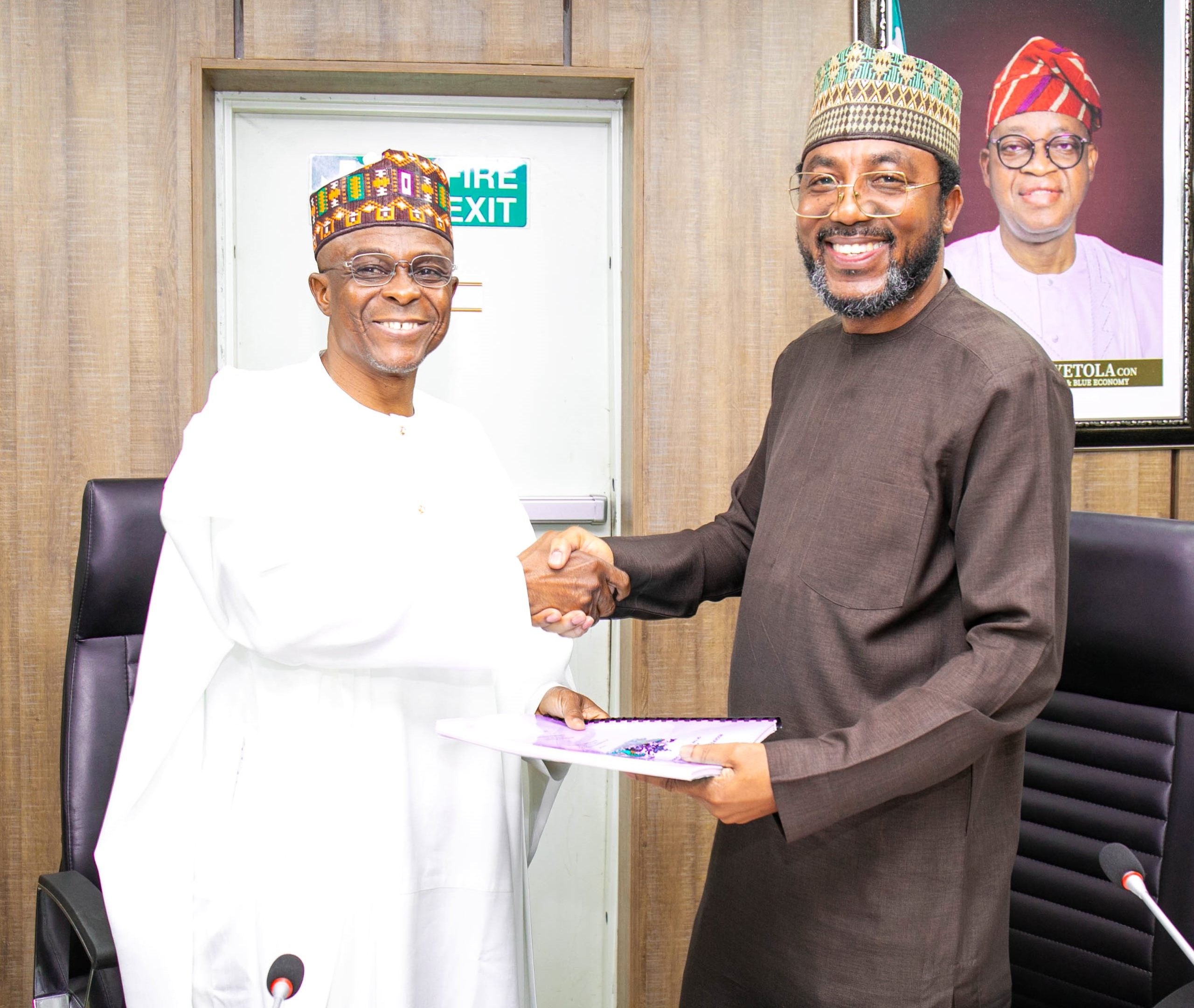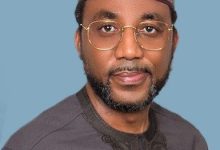Maritime
SILHOUTTE: The NPA $800m Proposed Loan

BY EGUONO ODJEGBA
Official veil hang over the $800million credit facility, currently being sourced by the Nigerian Ports Authority (NPA), which real purpose appears shrouded in secrecy, as the management of the authority may have prevaricated as per the actual purpose for the loan, going by latest news report.
While the, NPA Managing Director, Mohammed Bello-Koko at the just concluded International Association of Ports and Harbors (IAPH) Europe and Africa 2023 Regional meeting Thursday, February 16 2023, listed the rehabilitation of four ports in the country as reason for seeking a whooping $800 million loan, in another breathe, he was quoted as also tying the loan to the digitization of the ports.
Since the news report, the authority did not make any contrary position, which suggests that the report about the use of the facility for ports rehabilitation also entails the expansion of assets and other infrastructure, such as automation of the port, which on its own is a very massive project.
To assert that the authority has been hunting for loan to fix the ports broken down infrastructure, and just before the loan papers are signed, NPA makes a detour and speaks about a separate component does not augur well for clarity and due process; and indeed raises doubt about the integrity of the whole loan scheme.
The port industry has suffered a long history of convoluted daylight roguery through financial smokescreen, enabled by otherwise well intentioned programmes conceived by responsible officials, who regularly sign off huge funds for purposes that are never realized, largely through schemes that are often deliberately mutilated in their documentations and contract processes; and which ends up failed projects.
While giving hints about the proposed credit facility, the NPA boss listed the affected concerns to include Tin Can Island Port, Apapa Port in Lagos, Onne Port in Rivers State, including the rehabilitation of the Escravos breakwaters in Warri Port and the Calabar Port in Cross River.
But again, he was quoted by news report to have also told his listeners that he is interested in pushing the ports digitalisation, as also reasons for the $00million loan? While the digitalization is neither a new proposal nor a bad idea, it must however be interrogated for introducing some sorts of conflicts and confusion into the loan been processed.
While NPA owes Nigerians explanations on full disclosure about the proposed loan, it is expected that whatever the loan is tied to is not hidden, such that NPA must state clearly, its full template, and to avoid any unnecessary conflict that may ensue, and which makes Bello-Koko’s equivocation worrisome.
Instructively, he was straight forward and clear that the $800 million loan facility is repayable under seven year period, and even explained that the loan is still being worked out. That is clarity as it can be, aside his stance that although the authority can finance the ports rehabilitation, he wanted to avoid a situation where the doors are closed against alternative financing options.
“The rehabilitation of Tin Can Island Port in Lagos, Apapa Port in Lagos, Onne Port in Rivers State, rehabilitation of the Escravos breakwaters in Warri Port and the Calabar Port in Cross River will cost $800 million.
“The loan is repayable in a seven-year period, and this will help in achieving the digitalization of all ports in Nigeria,
Bello-Koko has been talking about the rehabilitation of the port quays and other failed infrastructures, and indeed about digitalizing the ports processes; until now, he has maintained full clarity and thus must be encouraged to remove any grey spot that may undermine his laudable drive.
With a private sector focus, he realised the importance of automation to port business, the reason he begun the championing of the deployment of a Port Community System, intended to fast track ship and cargo clearance, improve efficiency and block leakages. He believes that the system will reduce wastage, improve the turn-around time of vessels and ultimately act as support for the take off of a National Single Window.
While addressing the international session, he explained that the reason he opted for a loan from lending institutions was to ensure that remittances to the federation purse was not hampered in any way, which touch off another worrying issue about the mandate of the authority.
Few days ago, it emerged that the NPA helmsman have settled on Afrexim Bank as the choice lender, courtesy of Olusegun Williams, in a recent image laundering article, where he disclosed that the signing of the agreement is imminent; further noting that Bello-Koko has committed enormous energy into growing the authority’s revenue generation assignment, as key performance indicator.
The modalities and bid processes through which Afrexim Bank emerged the choice lender also appears cloudy since the NPA is yet to make a statement about this. Full disclosure and accountability is not only desirable but required because we are talking about a huge state financial project here.

As a financial expert, there is no doubt that Bello-Koko understands the importance of these critical elements under full disclosure, evaluation and monitoring, and indeed, even management. Is Afrexim Bank the best available lender? What is the lending rate? Is it the most competitive and affordable amongst lending institutions that bided? Was the bid open? Sadly, so many questions are tied to this $800million credit facility, since lenders are not Father Christmas.
But let us move to something else, loudly amplified in Olusegun Williams article, which is NPA’s purported revenue generation role, and projected target. As a commercial regulator, is NPA objective to facilitate trade or to generate revenue for the country? Some appointees into government agencies have this dubious and questionable ways of politicizing their assignment and unavoidably corrupting the system, and the inherent national objective and goals of their various organizations. While those whose business it is to know say it is a major disservice for the NPA to prioritise revenue generation over its regulatory role, further justification of such by paid jobbers and commentators can only inflict more damage on our port trade that is already suffocating under unbearable service delivery costs. But that let us hurry pass that and return to it another day.
Nor is the question about this particular rehabilitation given its huge scale new, while Bello-Koko and one else, is supposed to take the glory, and therefore, should be forthright and meticulous in keeping to the details, to prevent misunderstanding and or misapplication.
Indeed the talk about the ports automation and rehabilitation of decaying ports infrastructure were his immediate agenda after his confirmation as substantive managing director in February 2022.
While the broken down infrastructure appeared compelling and urgent for him, Bello-Koko also quite rightly realized the enormous benefits in driving the automation of the port industry. Despite their intertwined nature, they remain different, and there is no question of muddling up their administrative, financial and contractual frameworks; that would be preposterous, since the rehabilitation of collapsed infrastructures has become more urgent than ever.
It will be recalled that in May last year during the official of Lagos ports by the former Honourable Minister of State for Transportation, Senator Gbemisola Saraki , she reaffirmed the position of NPA’s commitment for the total reconstruction of the of the Tin Can Island Port quay apron which had caved in.
Speaking on the ministry’s plan to undertake a holistic turnaround rehabilitation of the port infrastructure, she said:
“We cannot build on a weak foundation, it is vital that we get these two very important ports modernized and ready to berth modern vessels. The state of the ports shows decades of neglect but it’s better late than never.
The NPA helmsman had earlier allayed fears of the imminent collapse of the Tin Can Island port following media reports suggesting its imminent collapse. He said the authority was already in talks with competent multilateral funding institutions for the reconstruction project, noting discussion was at conclusive stages about the funding options, which includes and the possibility of the NPA being granted a moratorium to fund the reconstruction.
Koko had on several interactions with the media drawn attention to the fact that although the NPA had over the years been undertaking remedial works on the quays, NPA and the FMOT had decided there should be reconstruction of the entire operational base.
“The time has come for a holistic reconstruction and the Authority is working with the Federal Ministry of Transportation on the most prudent funding option. We are on the verge of concluding discussions with multilateral funding agencies to fund the reconstruction. The other option is to go to the government to request that the NPA be allowed to use a certain percentage of its revenue, which is transferred to the consolidated revenue fund on yearly basis to fund the reconstruction.
“We transfer about N60 billion a year and we can use about 50 per cent of that to repair Tin-Can. Another option is to do hybrid funding where NPA funds part and multilateral agencies fund the rest.
“Cognizant of the urgency of the situation on ground we might soon be seeking for Federal Executive Council for approvals. We have started working on securing a holistic interim and conceptual design for the port, and we will eventually get the final design and move unto the Procurement process,” he added.
Indeed in his acceptance statement, Bello-Koko said, “Our vision is to have a fully automated port system that will fit into global port standards. With my experience as the Executive Director Finance and Admin and later Acting Managing Director, I will continue to work with all stakeholders to create an institution that is responsive to the expectations of the government, maritime industry, and the general public.
“As we move to complete the Lekki deep seaport, we are open to investments to develop other strategic deep seaports in the country. While also pursuing rehabilitation of decaying ports infrastructure, improving marine services, cutting down expenditures, improving revenue, and pursuing aggressively, recovery of debts, we will however not relent on our core mandate — trade facilitation; easing gridlock in the ports, and encouraging the full utilization of the Eastern Ports.”
It’s been a year hence, and despite that the required critical rehabilitations has continued to exert negative curve on the ports overall performances, somehow NPA is still moving around in circle, on one spot, with less than two months for this government to vacate office.
Now again, we are saddled with the pedestrian delineation of the $800million loan that is in the making, as a people forever groping in the dark. The ports rehabilitation and digitalization programmes are too important to be diminished and obfuscated in needless controversy.
Thus it is important that the NPA helmsman put these issues in clear perspective before the going loan is picked up and and the political wind catches up with it, and made to chase after phony contingencies and politically motivated projects.































